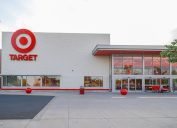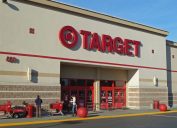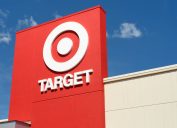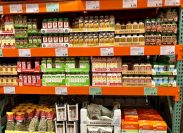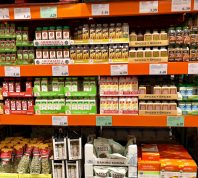Here's Why You Can't Buy Just One Thing at Target, Psychologists Say
There's a reason you end up with more than you planned in your cart.
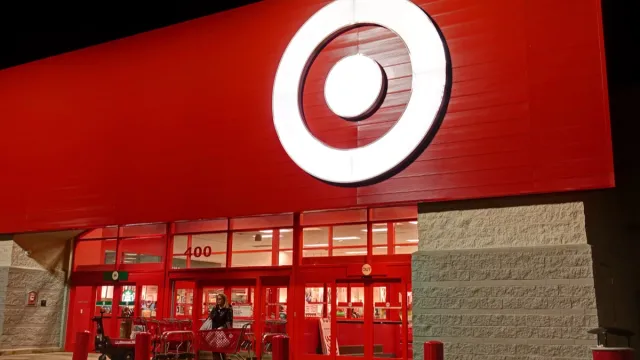
When shopping at Target, it's hard to resist the urge to throw different items in your basket, even when you're on a mission for something specific. Maybe you pick up a pair of sandals that spark joy or a candle that smells too good to pass up—and before you know it, your cart is full and you still haven't secured the paper towels you originally came in for. If this sounds like you, you're not alone. There's actually a reason why you can't buy just one thing at Target—and it has to do with psychology. Read on to find out why experts say you can't resist impulse buys at this retailer.
READ THIS NEXT: Walmart and Target Have a Secret Hiding Spot for Clearance Items.
There's an actual term for your Target addiction.
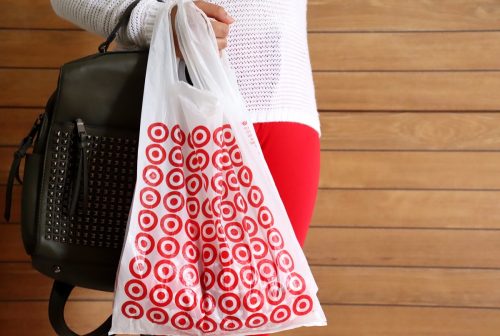
While you may feel it's just a lack of self-control that compels you to spend more at Target, it's not all on you. The big-box retailer has a hand in your shopping habits, creating something called the "Target Effect."
According to Urban Dictionary, shoppers use this term to describe what we all experience: Leaving Target with way more than we planned on purchasing.
In psychological terms, the Target Effect is a form of the Gruen Transfer, a retail strategy that intentionally overwhelms shoppers to get them to buy more.
"The Gruen Effect—also known as the Target Effect and the Gruen Transfer—involves an intentional transfer of the consumer's goal-oriented shopping experience to the retailer's agenda of boosting sales," clinical psychologist Carla Marie Manly, PhD, tells Best Life.
So, how exactly do they do this, you ask? They have a targeted approach (pun intended).
The retailer taps into your desire to "treat yourself."
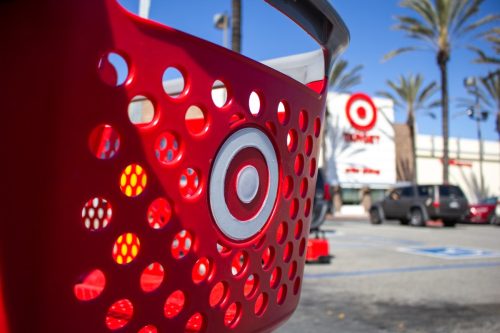
Target compels you to buy more through a series of different strategies, a lot of which involve making you feel good while you shop.
"For many, traveling to Target to purchase household goods is an experience or event, even viewed as a reward instead of a chore," explains Ross B. Steinman, PhD, professor of psychology at Widener University. "Although consumers might enter Target with the best intentions to stay within their budget, the numerous stimuli strategically placed in the store–colors and sounds, discounts and deals–often overwhelms them."
These factors can then disrupt your decision-making process, leaving you more inclined to throw that decorative pillow into your cart.
Let's set the scene: You pick up said pillow, check the price, and debate whether it's worth it. After a few moments, you rationalize your purchase by telling yourself you deserve a little something special. While you're certainly entitled to a treat once in a while, Steinman says that Target is actually fostering this mindset.
"From a psychological perspective, Target's integrated, branded marketing environment is an enveloping stimulus that has the potential to increase consumers' self-reward focus, thereby leading them to exhibit less self-control and more indulgent consumer behavior when shopping," he says.
For more shopping advice delivered straight to your inbox, sign up for our daily newsletter.
The stores are strategically set up.
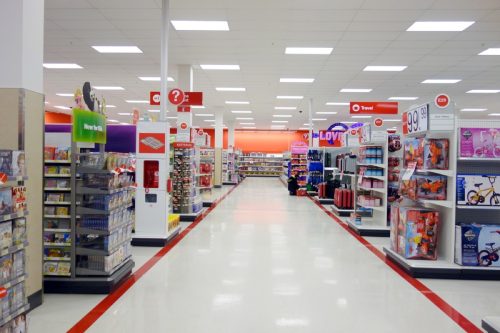
Target is also set up to encourage you to spend more time shopping.
If your local store has a Starbucks, you'll notice that it's located up front so you can grab a beverage before you browse (and the inviting smell of fresh coffee certainly doesn't hurt).
While you walk through the store, the wide aisles are easy to navigate and the flow of departments just makes sense, moving from clothing to shoes to toys and so on. Again, this is all by design.
Manly adds that Target isn't alone in utilizing these strategies, and you may notice that you fall under this spell at different stores.
"Retailers have come to know and rely on the effects of store layout and display design. Whether you're inside a large, flowing shopping mall, department store, or a Costco, you're likely subjected to the Gruen Effect," she says.
As far as encouraging you to purchase specific items, Target capitalizes on humans' visual nature, using intriguing displays and layouts.
"Retailers know the art and science of drawing consumers' attention to alluring 'must have' items. Even when you're on a task-oriented shopping expedition, it's often nearly impossible to avoid the eye-catching displays that lead to impulse purchases," Manly explains.
"Most of us have had the experience of running into a store to buy a specific item that ends up turning into a basket filled with items you didn't know you needed but had to have," Manly adds.
You can fight back.

According to Manly, Target isn't likely to let up on these strategies.
"Although [Victor] Gruen—the architect after which this effect is named—decried retailers' manipulative strategies, this successful, sales-boosting strategy is likely to persist due to its positive results," she says.
If you want to combat the Gruen Effect on your next Target excursion, the first step is making a list—but the key is sticking to it.
"When you have a very purposeful shopping method—sticking to a list that is based on items you truly need—you're far more likely to avoid impulse buys fostered by manipulative layout strategies," Manly notes.
Manly also recommends being strategic about when you shop and considering your mood. "Strive to shop when you're not hungry or in a low mood; impulse buys tend to skyrocket when we're hungry, lonely, upset, or blue," she says.
